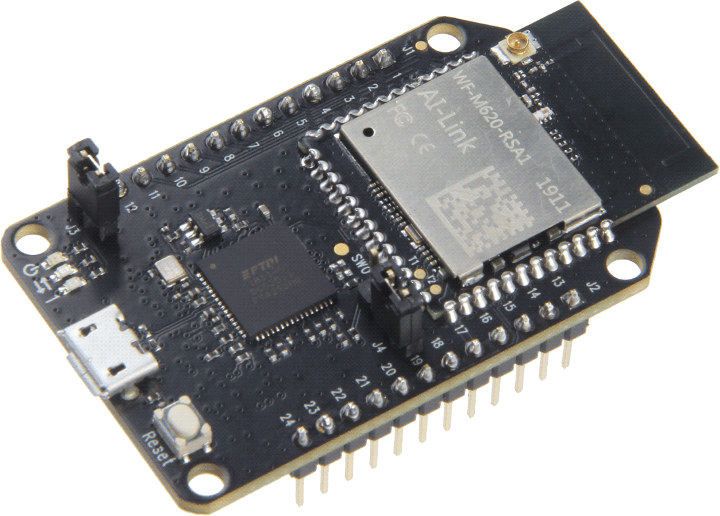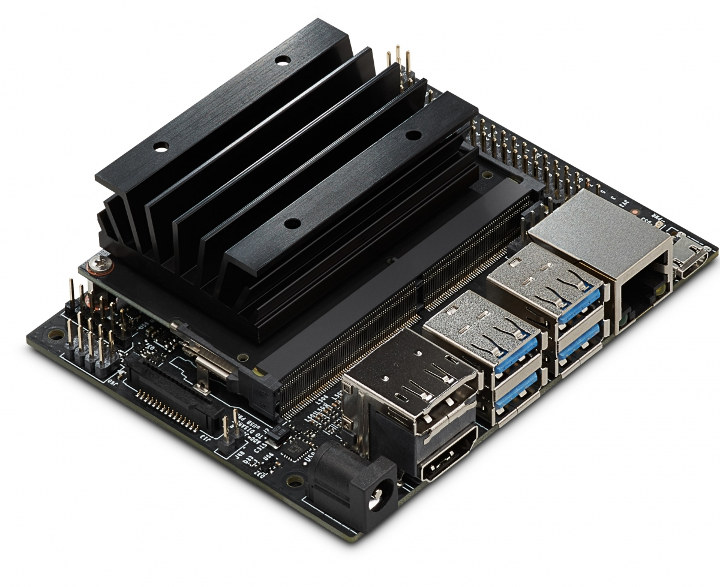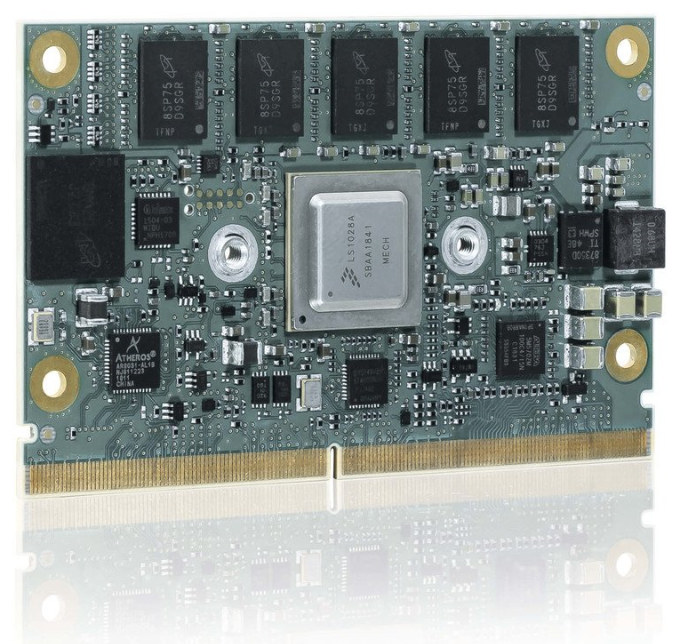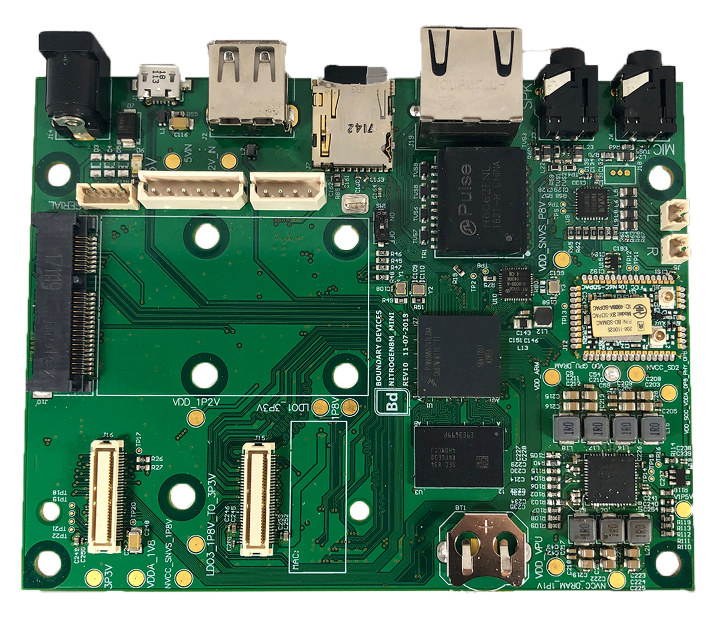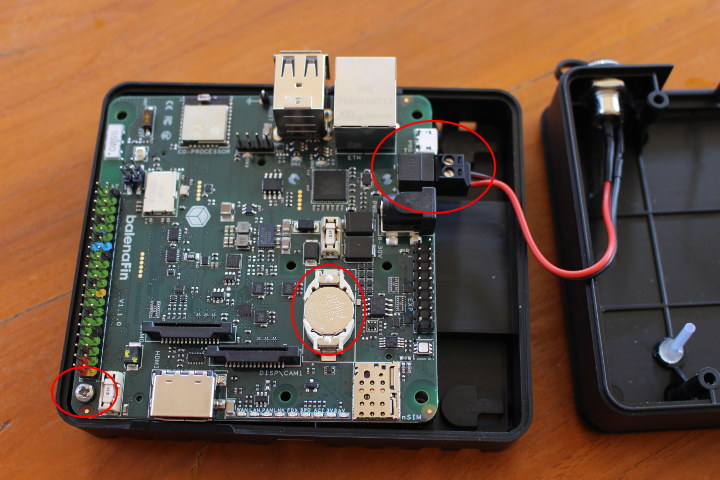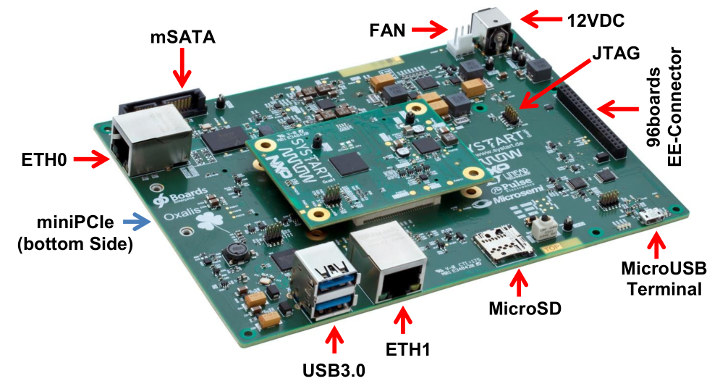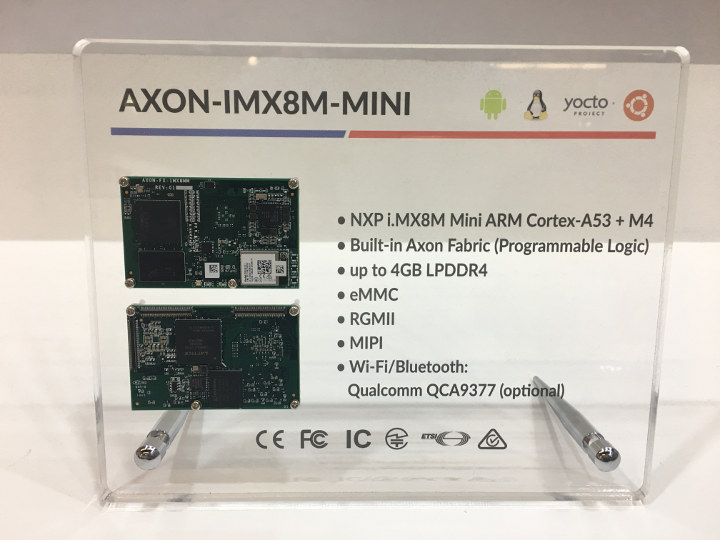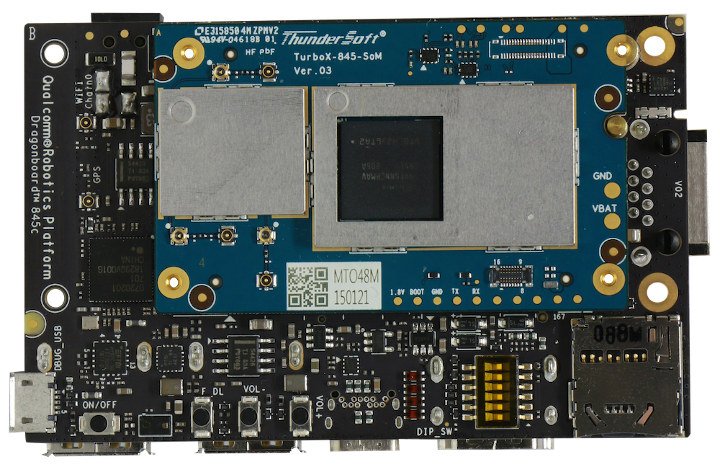Announced nearly one year ago, Microsoft Azure Sphere is an ecosystem comprised of Azure MCUs with Microsoft Pluton Security System, Linux based Azure Sphere OS, and a secure cloud service called Azure Sphere Security Service. The first official Azure development board – MT3620 Development Board for Azure Sphere – was launched last year for $84.95. The kit may not have attracted a large number of developers, so there’s now a cheaper version – MT3620 Mini Dev board – going for $34.90 on Seeed Studio. Note that’s a pre-order and shipping is scheduled for May 13, 2019. MT3620 Mini dev board specifications: CPU Module – AI-Link WF-M620-RSA1 module with Mediatek MT3620AN single core Arm Cortex-A7 processor @ 500 MHz with 4MB SRAM, dual core Arm Cortex-M4F real-time core @ 200 MHz with 64KB RAM, Pluton security sub-system, and WiFi. Storage – 2x 8MB dual channel quad SPI (TBC) Connectivity – Dual band […]
NVIDIA Introduces $99 Jetson Nano Developer Kit
NVIDIA Tegra X1 octa-core Arm processor with a 256-core Maxwell GPU was introduced in 2015. The processor powers the popular NVIDIA Shield Android TV box, and is found in Jetson TX1 development board which still costs $500 and is approaching end-of-life. The company has now introduced a much cheaper board with Jetson Nano Developer Kit offered for just $99. It’s not exactly powered by Tegra X1 however, but instead what appears to be a cost-down version of the processor with four Arm Cortex-A57 cores clocked at 1.43 GHz and a 128-core Maxwell GPU. Jetson Nano developer kit specifications: Jetson Nano CPU Module 128-core Maxwell GPU Quad-core Arm A57 processor @ 1.43 GHz System Memory – 4GB 64-bit LPDDR4 @ 25.6 GB/s Storage – microSD card slot (devkit) or 16GB eMMC flash (production) Video Encode – 4K @ 30 | 4x 1080p @ 30 | 9x 720p @ 30 (H.264/H.265) Video […]
Kontron SMARC-sAL28 System-on-Module Supports ECC Memory, Up to 5 TSN Ethernet Ports
Many systems-on-module are equipped with one Gigabit Ethernet transceiver / PHY, but NXP LS1028A powered Kontron SMARC-sAL28 SoM is equipped with two Gigabit Ethernet PHY, and can optionally support up to 5 TSN-capable Gigabit Ethernet ports directly from the controller thanks one PCIe line that can be used as a QSGMII (Quad Serial Gigabit Media Independent Interface) port. Furthermore, the module comes with up to 4GB non-ECC or ECC memory. “What is TSN?” you may ask. It stands for “Time-Sensitive Networking“, provides distributed time synchronization and deterministic communication using standard Ethernet networks for applications such as distributed synchronized measurements, coordinated distributed data logging, next-generation computer numeric control machining, automotive networks, and more as explained on National Instruments website. But let’s go back to Kontron SMARC-sAL28 system-on-module with the hardware specifications: SoC – NXP LS1028A dual Arm Cortex A72 processor, 3D GPU System Memory – Up to 4GB DDR3L ECC or […]
Nitrogen8M_Mini Single Board Computer Launched for $135 and Up
Last month we write about Nitrogen8M_Mini, the First NXP i.MX8 8M Mini SBC, but at the time, it was not available for purchase just yet. Boundary Devices has now announced the official release of the board and is taking orders / pre-orders for $135 and up. Nitrogen8M_Mini SBC Two versions are being offered either with the board only, or as part of a devkit with a 5V power supply, an 8GB microSD card with Linux OS, a battery, and serial console cable: Nit8MQ_Mini_2r8eWB with WiFi and Bluetooth, currently in stock, and sold for $155 (board only), or $175 (devkit) Nit8MQ_Mini_2r8e without wireless module, to ship in a few weeks, and sold for $135 (board only), or $155 (devkit) Nitrogen8M_Mini specifications: SoC – NXP i.MX 8M Mini with 4x Cortex A53 cores @ 1.5 to 2.0 GHz max, 1x Cortex-M4F real-time core, Vivante GCNanoUltra 3D GPU, Vivante GC320 2D GPU System […]
balenaFin Developer Kit Review – Part 1: Unboxing and Assembly Instructions
Balena launched balenaFin 1.1 at the end of last month. The board is a professional carrier board for Raspberry Pi Compute Module 3 / 3+ Lite that includes support for variable voltage power input, optional PoE, industrial eMMC flash storage, a real-time Arm Cortex-M4 core via Artik-020 module, and more. Somehow a balenaFin 1.1 developer kit ended up in my home, and I’ll play with it in several weeks, but in the first part of the review, I’ll just check out the content of the package, and show how to assemble the kit. BalenaFin 1.1 Developer Kit Unboxing The local courier brought a largish balena Fin package. which contained a smaller balenaFin package, and the actual developer kit. Everything is nicely packaged in the box with the part related to power supply in a white box, a small opening for smaller accessories and Raspberry Pi Compute Module 3, as well […]
Oxalis 96Boards Enterprise Edition Board Targets Low Power IoT and Networking Applications
Most 96Boards on the market follow 96Boards Consumer Edition (CE) specification, and while 96Board Enterprise Edition (EE) specification was first announced in 2015 we had yet to have a board available for purchase after previous failed attempts with AMD Opteron (Arm Cortex-A57) powered Cello board. But there’s finally a 96Board Enterprise Edition available today thanks to Systart Oxalis board powered by NXP LayerScape LS1202 Cortex-A53 processor with a packet accelerator, designed for low power IoT and networking applications, and following 96Boards EE “standard” form factor. Systart Oxalis key features and specifications: SoC – NXP Layerscape LS1012A single core Arm Cortex-A53 processor with hardware packet forwarding engine System Memory – Up to 3GB RAM Storage – 64MB SPI Flash for bootloader and RCW, MicroSD Card slot, 1x mSATA connector Networking – 2x Gigabit Ethernet ports (RJ45) USB – 2x USB 3.0 ports Expansion 40-pin low speed (LS) expansion connector with +1.8V, […]
TechNexion AXON and FLEX SoM Families Feature i.MX 8M Mini SoC, FPGA Fabric
Taiwan based Technexion has introduced several new products at Embedded World 2019 including two new SoM families: AXON and FLEX. AXON is a product family of small form factor (58 x 37 mm) modules designed for specialized embedded applications requiring extra I/O flexibility, while FLEX series is a low-cost family making use of the standard LPDDR4 SO-DIMM connector. Specifically, the company launched new AXON and FLEX modules powered by NXP i.MX 8M Mini processor with AXON-IMX8M-MINI featuring AXON Fabric programmable logic, a specialized IC that provides additional functions including nearly infinite pinmuxing, and FLEX-IMX8M-MINI that offers HD multimedia streaming and integrated 3D graphics for cost sensitive applications. AXON-IMX8M-MINI SoM AXON-IMX8M-MINI SoM specifications: SoC – NXP i.MX 8M Mini Solo, Dual or Quad Arm Cortex-A53+M4 processor FPGA – “Axon Fabric” making use of a Lattice MachXO3LF FPGA with 2100 LUTs (LookUp Tables) System Memory – Up to 4GB LPDDR4 RAM Storage […]
Qualcomm Robotics RB3 Development Platform is Powered by Snapdragon 845 SoC
[Update: The board is now known as “Qualcomm Robotics RB3 Development Platform” instead of DragonBoard 845c”, the rest of the article is unchanged] Qualcomm Snapdragon 845 is one of the fastest Arm processors found in consumer devices, and if you ever wanted a development platform with access to various I/Os, you’d have to go with fairly expensive kits (>$1,000) such as Intrinsyc Open-Q 845 HDK. The good news is that there’s now a cheaper Snapdragon 845 development board, compliant with 96Boards CE specifications, thanks to Thundercomm’s Robotics DragonBoard 845c that combines with processor with 4GB RAM, 64GB UFS storage, and the usual 96boards ports and expansion headers. Robotics DragonBoard 845c specifications: SoC – Qualcomm Snapdragon 845 with 8x custom 64-bit ARMv8 CPUs up to 2.8 GHz Adreno 630 GPU with support for OpenGL ES 3.2 + AEP, DX next, Vulkan 2, OpenCL 2.0 full profile, and RenderScript Hexagon 685 DSP […]


